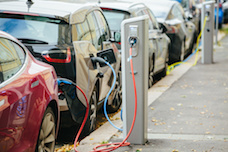Harsh Economics of Electric Vehicle Market Claim Another Victim in Dyson’s EV Division
It was always going to be a challenge, but British entrepreneur James Dyson has a reputation for taking on what may appear to be insurmountable challenges and winning.
Keep up to date on everything going on in the world of trade and tariffs via MetalMiner’s Trade Resource Center.
He disrupted the old order in the vacuum industry with his revolutionary designs starting in 1993. Dyson then went on to dominate hand dryers, air coolers and air purifiers — in fact, just about anything involving moving air and used electric motors.
Maybe that was the core expertise he felt would give him an edge in the electric car market. His firm’s expertise in electric motors and investments in new battery technologies includes its $90 million investment in Sakti3, a U.S.-based solid-state battery startup.
But after deep soul searching, the firm announced this month it was pulling the plug on its EV division, both at its U.K. headquarters and its brand new facility in Singapore.
Dyson has sunk some $200 million in its U.K. facility alone, including a new test track and building out a team of over 500 engineers and designers it largely hopes to retain in other areas.
Likewise, the Singapore facility is to be repurposed for the development and manufacture of consumer products (most of the 1,200 employees there will be retained).
Expensive as the investments to date have been, the Telegraph reported the management team decided it would be nothing to the losses on the $2.5 billion planned to bring the firm from an initial batch of working prototypes to full-scale production of 10,000 vehicles per year.
So what went wrong, you may ask?
Technologically, the firm had the creative talent and the financial strength to probably deliver on a viable end product, although deadlines were slipping (particularly for the key solid-state battery technology).
But the economics, on the basis of just 10,000 premium vehicles per year, was becoming increasingly tenuous, with new models flooding the market from established manufacturers like Volkswagen, BMW and Jaguar Land Rover. Even Tesla, which had a dominant head start in the premium EV car market, is struggling as competitors rush into an arguably oversupplied market.
Reports that Dyson will have to pay back government grants for research and development are probably premature. The firm only drew down £5 million of a £16 million facility and is clear its R&D investments in battery technology will continue unabated.
The suggestion is Dyson may yet come back to the EV market if it can perfect the solid-state battery technology needed for extended range, greater performance and the rapid charging seen as the holy grail by all EV and battery manufacturers.
In batteries, Dyson retains a significant core competency it will use not just for an eventual return to EVs, but for its whole range of battery-powered appliances.
Looking for metal price forecasting and data analysis in one easy-to-use platform? Inquire about MetalMiner Insights today!
For now, the firm’s withdrawal is unlikely to be the only casualty in the rush for EVs.
The construction may be simpler than internal combustion engine vehicles, but the technologies are developing so fast that even mainstream automakers are going to make wrong moves.
If nothing else, Dyson’s decision shows it is capable of swallowing its pride and taking hard decisions before the situation becomes untenable; however, they won’t be the last to be dashed on the rocks of a disruptive new technology.



Leave a Reply